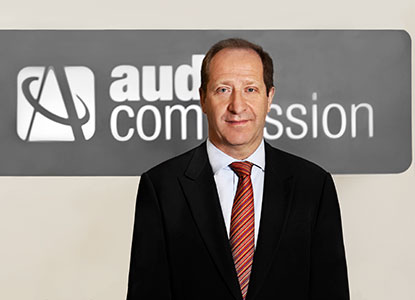By Vivienne Russell| 28 November 2013
One in ten councils is struggling to deliver planned budgets, having either failed to make savings, overspent on some services or suffered shortfalls in income, according to the Audit Commission.

Its Tough times report, published today, is the third and final in a series that has been issued every year since 2011. The watchdog praised the financial resilience demonstrated by the majority of councils, but urged authorities to continue to adapt in order to meet their statutory responsibilities.
A survey of auditors included in the report found that 89% of councils experienced no significant difficulties in delivering their agreed budget in 2012/13, and the majority (71%) did so without having to take unplanned actions.
However, among the 10% that auditors said struggled to deliver their budgets, failure to make adequate savings, rising cost pressures, weaknesses in financial control and uncertain prospects for future income were highlighted as factors.
Looking to the medium term, auditors said they were confident that around two-thirds of councils would be able to deliver their plans, but there were concerns about the medium-term prospects at more than a third (36%) of councils.
Audit Commission chair Jeremy Newman said: ‘With less income, councils continue to face risks to meet their legal obligations and the needs of their local communities.
‘When the Audit Commission has closed down, it will be for the government and others to find alternative ways to bring together auditors’ insights into the finances of English councils and to keep watch for signs of financial stress.’
CIPFA chief executive Rob Whiteman also noted that that the government has now dismantled bodies, such as the commission and the Standards Board, that were designed to improve council performance.
‘While it is good that nine out of ten councils are functioning well, we need to keep a keen eye on the one in ten that are not, and make sure they are getting the support they need,’ he said.
‘It would be damaging to all authorities reputations if some councils were to fail.’
Local Government Association chair Sir Merrick Cockell said councils could not be expected to perform miracles.
‘We are only half way through the cuts and already the auditors believe one in ten councils are in financial trouble and more than a third face a decidedly shaky future. The LGA has consistently said that 2015/16 is shaping up as the crunch year for local services and this report vindicates that warning.’
The report found the most common strategies councils employed to cut costs were: reducing overall staff numbers; delivering some services more efficiently; and reducing or restructuring the senior management team.
Between 2010/11 and 2012/13, staff cuts accounted for 48% of councils’ total spending reductions.
Largest average real-terms spending reductions by single-tier and county councils were in planning and development services (37.6%), cultural and related services (24.4%) and General Fund housing services (23.4%). Children’s social care had been relatively well protected from spending cuts, with councils increasing spending by an average of 1.2%.
Funding reductions were found to have been proportionally greater for councils that are more dependent on government income to fund spending. Metropolitan district councils have experienced the largest aggregate reductions in funding (22.5%) and counties the smallest (16.4%).
Almost two thirds of councils (63%) managed to add to their reserves, while the remainder (37%) reduced them. Overall, councils increased their reserves by £900m or 7% – a smaller increase than in 2011/12.



















